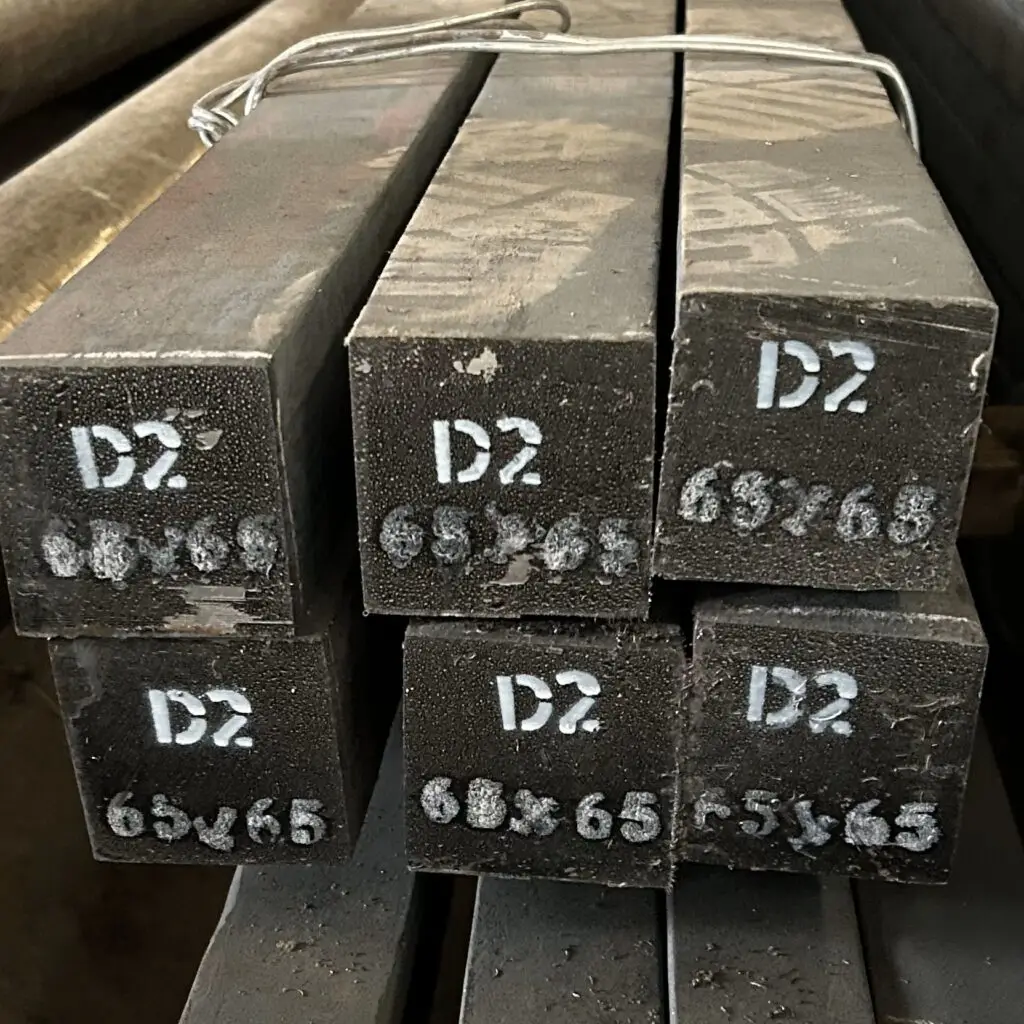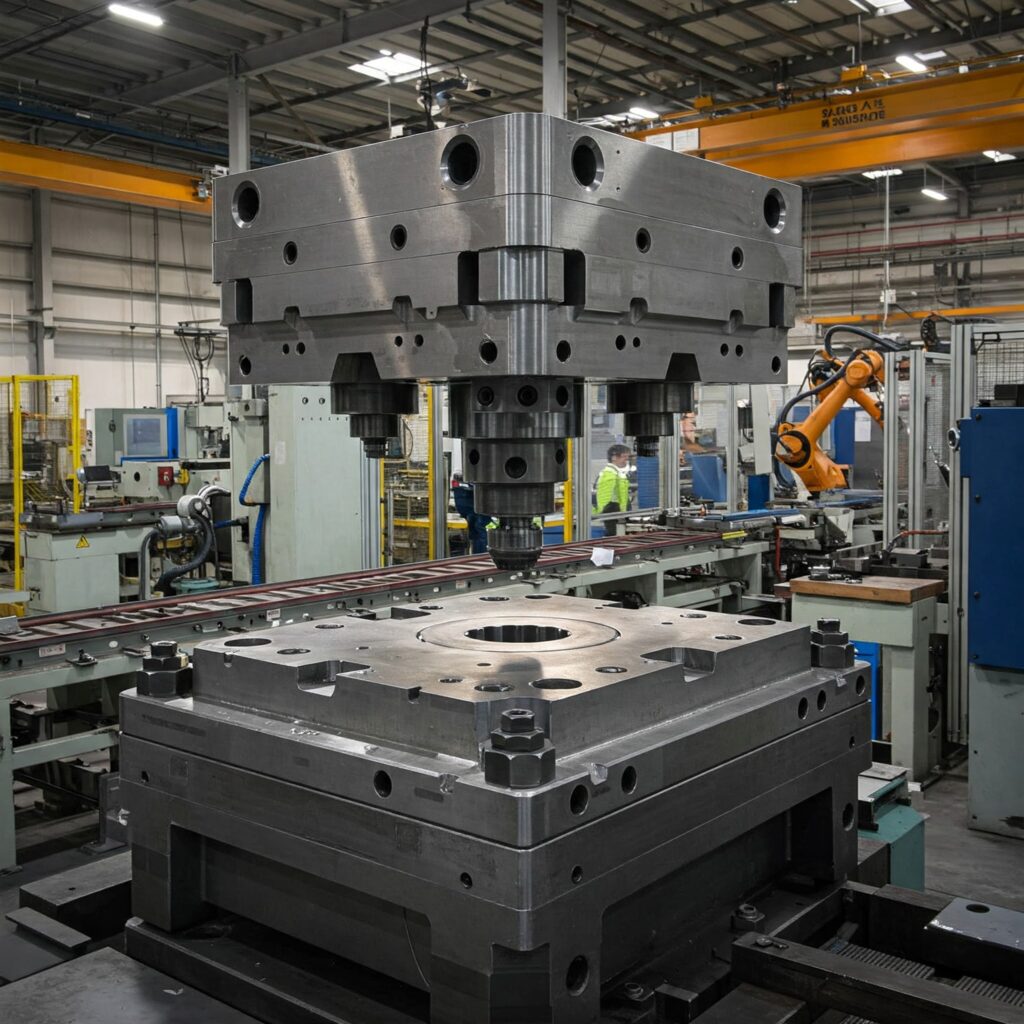Yes, D2 steel can be forged. However, due to its specific composition, particularly its high carbon and high chromium content, forging D2 tool steel requires careful attention to process parameters. As someone with over 15 years in the tool steel business, I can tell you that successfully forging D2 is entirely achievable when done correctly. At Aobo Steel, with our two decades of experience in forging tool steel, we understand these materials inside and out.

Understanding D2 Forging: Key Technicals for End-Users
Forging D2 isn’t like forging simpler steels. Its unique properties demand a more controlled approach. Here’s what you, as an end-user, should understand about the process.
Critical Temperature Control for D2 Forging
The forging temperature range for D2 steel is quite precise. You’re looking at a window generally between 1010°C and 1095°C (1850°F and 2000°F). Sticking to this is vital.
Temperature Limits: Don’t Push It
You risk partially melting the steel if you go too high, say around 1150°C (2100°F). This is a common issue with high-carbon, high-chromium steels like D2. On the other hand, forging below 870°C (1600°F) isn’t recommended for D-type steels like D2, which contain about 1% Vanadium.
The Importance of Preheating
D2 steel has low heat conductivity. This means when you heat it, significant temperature differences can occur within the material, potentially leading to cracks. To prevent this, a preheating step to around 650°C to 700°C (1200°F to 1300°F) is essential before bringing it up to the main forging temperature. Think of it as gently waking up the steel before the main event.
Post-Forging Considerations for D2 Steel
What happens after the hammer stops is just as important as the forging itself.
Cooling D2 After Forging: Slow and Steady
D2 is an air-hardening steel with deep-hardening characteristics. This means it must be cooled slowly after forging. Generally, you’ll want to avoid normalizing D2 after forging.
The Nature of Deformation in D2
D2 is a ledeburitic steel. This means it contains hard carbides that don’t fully dissolve even at forging temperatures. So, when you’re hot working D2, you’re dealing with a material that has both carbide and austenite phases. The good news is that the deformation process helps break down and refine the initial carbide network that forms when the steel solidifies.
A Word of Caution
Forging highly alloyed tool steels like D2 always requires a degree of caution. Under certain stress and strain conditions during forging, voids can start to form at these carbides and can join up, potentially leading to cracks. Proper control over temperature and the rate of deformation is absolutely key to avoiding this.
Subsequent Treatment: Annealing is Key
Annealing is always recommended after forging and slow cooling. This step is crucial before any machining or hardening processes to ensure the best machinability and minimize the risk of cracking.
For D2, annealing typically involves heating to 870°C to 900°C (1600°F to 1650°F). This is followed by slow cooling at a rate not exceeding 28°C per hour (50°F per hour) down to 540°C (1000°F), after which it can be cooled to room temperature. This process should result in an annealed hardness of around a maximum of 220 HB. Find more information about D2 tool steel heat treatment guide.
Aobo Steel’s Experience with D2
In summary, while D2 is renowned for its high wear resistance and is frequently used in forging operations (often for the dies themselves), forging the D2 material successfully hinges on strict adherence to thermal cycles and deformation practices. Managing the temperature accurately, ensuring proper preheating, and carefully controlling the cooling rate are fundamental to working with this robust grade.
At Aobo Steel (www.aobosteel.com), we have over 20 years of experience in forging tool steel and work with over 40 stable suppliers. We’ve seen it all and done it all when it comes to tool steel. If you have questions about D2 or any other tool steel grades, don’t hesitate to reach out. We prefer solving problems and providing clear, direct information.
Premium D2 Tool Steel: Precision, Durability & Expert Support
At Aobo Steel, we specialize in D2 Tool Steel, drawing on over 20 years of forging expertise and a network of 40+ trusted suppliers. We ensure you receive high-quality D2 steel—offering exceptional wear resistance, toughness, and stability—perfectly matched to your demanding applications.
I’m Evan, your dedicated tool steel expert with over 15 years of foreign trade experience. I’m here to provide personalized guidance. To discuss your specific D2 requirements and how Aobo Steel (www.aobosteel.com) can support your project’s success, please fill out the contact form below.


